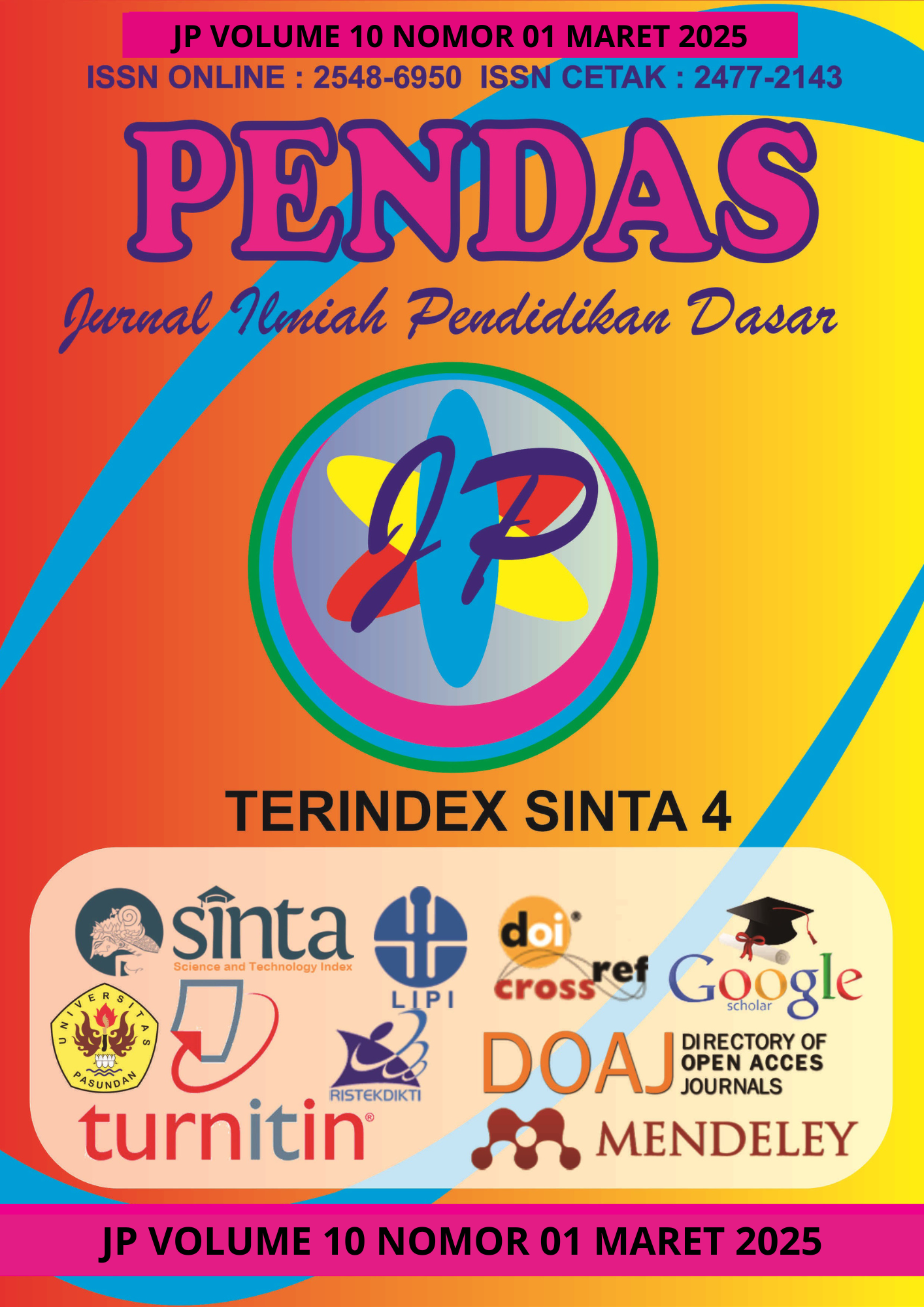PENGEMBANGAN MEDIA FLIPBOOK BERBASIS AR PADA MATERI PERKEMBANGBIAKAN TUMBUHAN KELAS IV SDN BULUSARI
DOI:
https://doi.org/10.23969/jp.v10i01.23476Keywords:
Flipbook, Augmented Reality, DevelopmentAbstract
This research is driven by the insufficient learning media available to students and the limited time allocated for practical learning, which hampers their comprehension of the material being taught. To address this issue, effective learning media is essential. Learning media serves as a tool to facilitate efficient and optimal learning. With the advancement of technology, learning can be enhanced through the use of Augmented Reality (AR) based media, specifically AR-based flipbook media. This study focuses on two primary objectives: the development of AR-based FlipBook learning media for plant propagation material aimed at fourth-grade elementary school students, and the evaluation of the media's feasibility. The goals of this research are to create AR-based FlipBook learning media on plant propagation for fourth-grade students and to assess the feasibility of this development. This research adopts a research and development approach, employing the ADDIE method, which encompasses analysis, design, development, implementation, and evaluation. The research is conducted at SDN Bulusari, involving 25 fourth-grade students during the 2024/2025 academic year. Validation results from two material experts indicated a score of 80% (feasible), while media experts rated it at 95% (very feasible). Field trials revealed a teacher response rate of 100% (very good) and a student response rate of 90% (very good). In conclusion, the AR-based flipbook media for plant propagation material is deemed "very practical" and suitable for use. The study recommends that schools encourage teachers to be more proactive and innovative in developing learning media by utilizing the resources available in their surroundings.
Downloads
References
Aprilia, T. , Sunardi, dan Djono. (2017). Penggunaan Media Sains Flipbook dalam Pembelajaran IPA di Sekolah Dasar. Teknodika: Jurnal Penelitian Teknologi Pendidikan, 15 (2), 74-82.
Decoding Indonesia. (2020). Augmented Reality (AR). Diakses pada 25 November 2023 dari https://www. dicoding. com/blog/apa-itu-augmented-reality-dan-contohnya/.
Hasan, M. , Milawati, M. , Darodjat, D. , Harahap, T. K. , Tahrim, T. , Anwari, A. M. , dan Indra, I. (2021). Media Pembelajaran.
Kementerian Pendidikan, Kebudayaan, Riset, dan Teknologi. (2022). Kemendikbud. Diakses
pada 25 November 2023 dari https://kurikulum. kemdikbud. go. id/file/cp/dasmen.
Mustaqim, I. , dan Kurniawan, N. (2017). Pengembangan Media Pembelajaran Berbasis
Augmented Reality. Edukasi Elektro, 1(1), 36–48.
Pagarra, H. , Syawaluddin, A. , dan Krismanto, W. (2022). Media Pembelajaran.
Pradana, R. M. (2021). Peningkatan Pemahaman Konsep Peredaran Tata Surya Menggunakan
Media Video Animasi di MI Muhammadiyah 1 Pelabuhanrejo.
Pusat Data dan Informasi Pendidikan, Balitbang – Depdiknas. 2020. Undang-Udang Republik
Indonesia Nomer 20 Tahun 2003 Tentang Ssistem Pendidikan Nasional. kementrian
penddikan, kebudayaan, riset dan teknologi. Diakses pada 25 November 2023 dari
https://jdih.kemdikbud.go.id/sjdih/siperpu/.
Rizal, S. U., Maharani, I. N., Ramadhan, M. N., Rizqiawan, D. W., Abdurachman, J., &
Damayanti, D. 2016. Media pembelajaran.
Setiadi, M. I. , Muksar, M. , dan Suprianti, D. (2021). Penggunaan media pembelajaran flipbook
untuk meningkatkan aktivitas dan hasil belajar siswa. JISIP (Jurnal Ilmu Sosial dan
Pendidikan), 5(4).
Downloads
Published
Issue
Section
License
Copyright (c) 2025 Pendas : Jurnal Ilmiah Pendidikan Dasar

This work is licensed under a Creative Commons Attribution 4.0 International License.














































